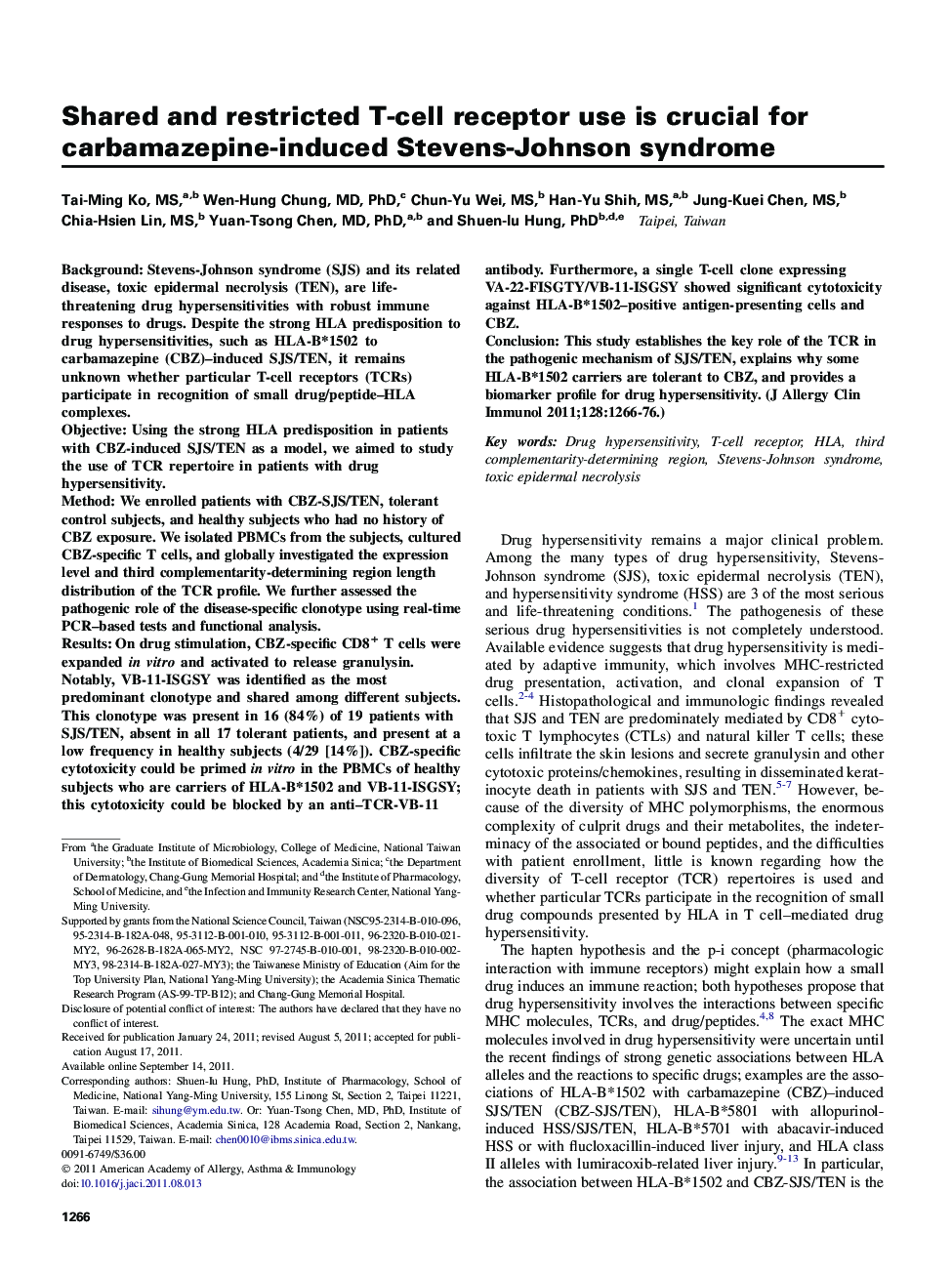| Article ID | Journal | Published Year | Pages | File Type |
|---|---|---|---|---|
| 6067189 | Journal of Allergy and Clinical Immunology | 2011 | 22 Pages |
BackgroundStevens-Johnson syndrome (SJS) and its related disease, toxic epidermal necrolysis (TEN), are life-threatening drug hypersensitivities with robust immune responses to drugs. Despite the strong HLA predisposition to drug hypersensitivities, such as HLA-Bâ1502 to carbamazepine (CBZ)-induced SJS/TEN, it remains unknown whether particular T-cell receptors (TCRs) participate in recognition of small drug/peptide-HLA complexes.ObjectiveUsing the strong HLA predisposition in patients with CBZ-induced SJS/TEN as a model, we aimed to study the use of TCR repertoire in patients with drug hypersensitivity.MethodWe enrolled patients with CBZ-SJS/TEN, tolerant control subjects, and healthy subjects who had no history of CBZ exposure. We isolated PBMCs from the subjects, cultured CBZ-specific T cells, and globally investigated the expression level and third complementarity-determining region length distribution of the TCR profile. We further assessed the pathogenic role of the disease-specific clonotype using real-time PCR-based tests and functional analysis.ResultsOn drug stimulation, CBZ-specific CD8+ T cells were expanded in vitro and activated to release granulysin. Notably, VB-11-ISGSY was identified as the most predominant clonotype and shared among different subjects. This clonotype was present in 16 (84%) of 19 patients with SJS/TEN, absent in all 17 tolerant patients, and present at a low frequency in healthy subjects (4/29 [14%]). CBZ-specific cytotoxicity could be primed in vitro in the PBMCs of healthy subjects who are carriers of HLA-Bâ1502 and VB-11-ISGSY; this cytotoxicity could be blocked by an anti-TCR-VB-11 antibody. Furthermore, a single T-cell clone expressing VA-22-FISGTY/VB-11-ISGSY showed significant cytotoxicity against HLA-Bâ1502-positive antigen-presenting cells and CBZ.ConclusionThis study establishes the key role of the TCR in the pathogenic mechanism of SJS/TEN, explains why some HLA-Bâ1502 carriers are tolerant to CBZ, and provides a biomarker profile for drug hypersensitivity.
